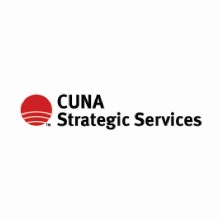Basics of Credit Union Financials
The Basics of Credit Union Financials course provides a foundation in basic accounting for individuals who have minimal or no college accounting or business background or need a refresher course on fundamentals. This course takes a look at financial statements and what makes them move. Credit Union employees at all levels are encouraged to take this course.
Educational Investment: $429 per participant
This is a 4-week course starting on February 6th.
SCHEDULE
Course 1: Balance Sheet
Tuesday, February 6th
11:00 a.m. – 12:00 p.m. EST
You will learn to define the different areas of the balance sheet such as assets, liabilities, and net worth. The different categories of the three areas will be broken down and examples given of how debits/credits affect each. There will also be an in-depth discussion of how money flows through the balance sheet.
Course 2: Income Statement
Tuesday, February 13th
11:00 a.m. – 12:00 p.m. EST
The income statement is unique from the Balance Sheet because income/expenses are accumulated over a period of time. We will discuss what makes up the major categories of income and expense. How do accounts like monthly depreciation expenses interact with accounts on the balance sheet. Finally, we will answer: Why is one month of actual numbers "annualized?" How is the calculation done?
Course 3: Ratios
Tuesday, February 20th
11:00 a.m. – 12:00 p.m. EST
This session will allow you to understand how changing balances of the loan category, when combined with changing rates, can drive total loan income. You will also explore how to combine a balance sheet and income statement together by utilizing a spread report.
Course 4: Interactive Session
Tuesday, February 27th
11:00 a.m. – 12:00 p.m. EST
This session is a culmination of the Basics of Credit Union Financials as we explore how changes to a credit union’s balance sheet and/or income statement can have an impact on the financials and ratios. We will answer: What do the changes or impacts mean to the credit union? Participants will be able to bring specific examples of challenging issues they have encountered from an accounting or finance perspective.
|



